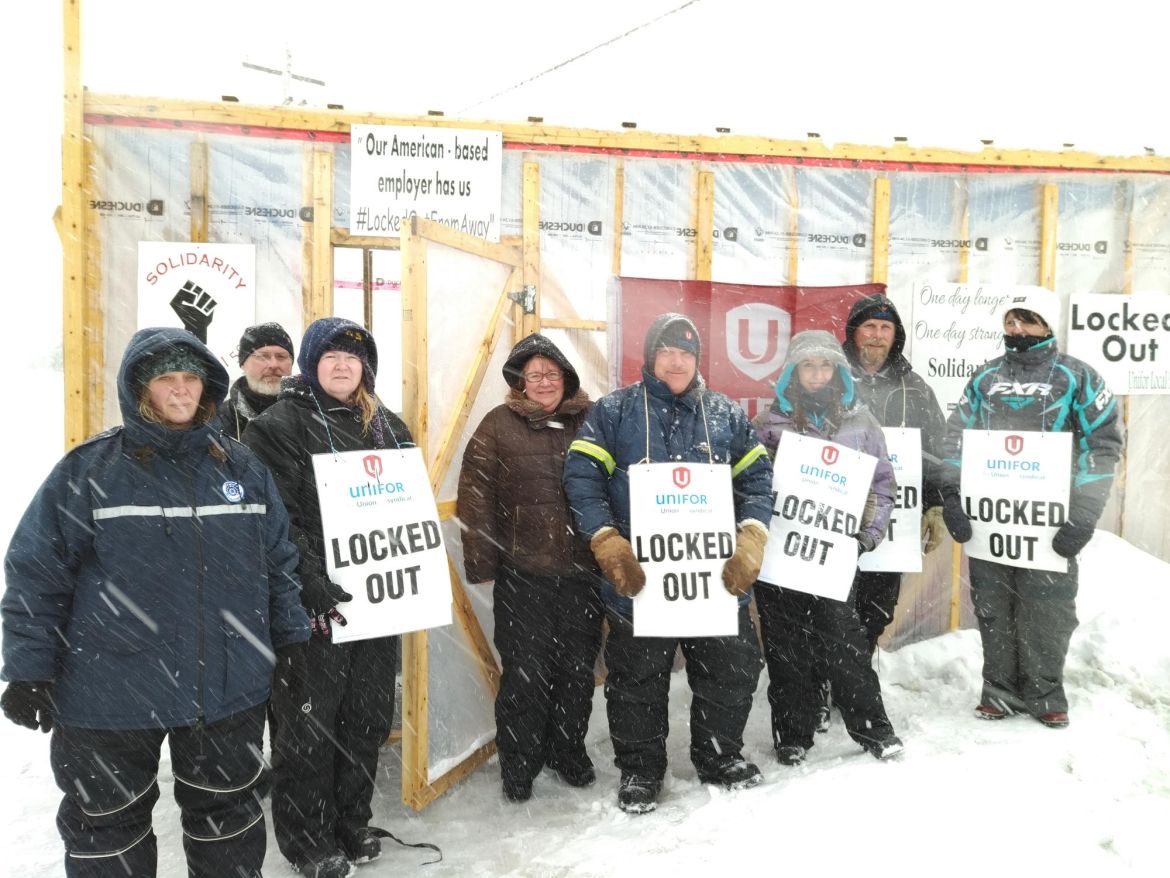
Share
A 56-second video caused a national uproar this week over whether my union, Unifor, crossed the line when seven scabs who are prolonging a 21-month lockout of 30 aerospace workers in Gander were named and shamed.
The video sparked an immediate backlash. Demands we take the video down. Demands we apologize. Not a chance.
The fact that misguided sympathy for these scabs turned this long-ignored lockout into a national news story is a good thing.
Because it sparked a debate about scabs, and several news outlets paid attention to the fact that an American employer has been allowed to break provincial labour laws twice and put Canadian workers on the street for 91 weeks because the employer wants to bust the union.
The workers at D-J Composites are staring down their third Christmas on the picket line – a deplorable situation made possible by the company using scabs to do the work of those it chose to lock out of the workplace just days before Christmas in 2016, back when Obama was still president.
Enough is enough.
Scabs are a force of destruction that encourage a race to the bottom for worker rights and compensation. They completely skew the balance of power that is the basis of Canada’s labour relations system.
In my experience – and I’ve been negotiating collective agreements for more than 30 years – strikes and lockouts only tend to drag on when employers bring in scabs to steal the jobs of the union members forced onto a picket line.
It is also why naming and shaming scabs is perfectly legal.
“Those crossing the picketline would reasonably expect that their image could be caught and disseminated by others,” ruled the Supreme Court of Canada in 2013.
The decision to cross a picket line to steal someone else’s job comes with consequences.
Public shaming.
The days of simply letting scabs help employers prolong strikes or locked out must come to an end.
Organized labour, Unifor included, has worked for years to convince governments to ban the use of scabs. Only British Columbia and Quebec have anti-scab legislation. This is a disgrace.
If governments refuse to act, the labour movement must.
We cannot allow another scab to enter a workplace in the midst of a strike or lockout.
We must make sure any worker who cross a picket line to steal another workers’ job is made fully aware of the damage they are doing to their neighbours and fellow workers.
And, when it comes to it, we must continue to name and shame the scabs publicly.
This is something Unifor has done in Goderich and Gander, Newfoundland and we will do this in the future.
Especially in a case such as D-J Composites, where outdated provincial labour laws have failed to protect workers. It is truly outrageous that the provincial government sits idly by as an American company blatantly violates the rights of the province’s own citizens and ignores the laws and labour board rulings of that province – having been found guilty twice of bargaining in bad faith.
When a company refuses to bargain fairly and the government refuses to act and enforce its own laws, labour must act.
We have developed a system of precarious employment in Canada that makes workers desperate for work – any work. No doubt that makes working as a scab tempting to some. However much some might sympathize with that, however, stealing the job of another worker only makes things worse for all workers – including the scab.
The solution to all this is to ban scabs and restore balance at the bargaining table. In the meantime, a good place to start would be for the government of Newfoundland and Labrador to simply enforce the laws it already has on the books, and compel D-J Composites to go to binding arbitration.
Our governments must serve the needs of their people, not foreign corporations.
If they won’t, we will.



